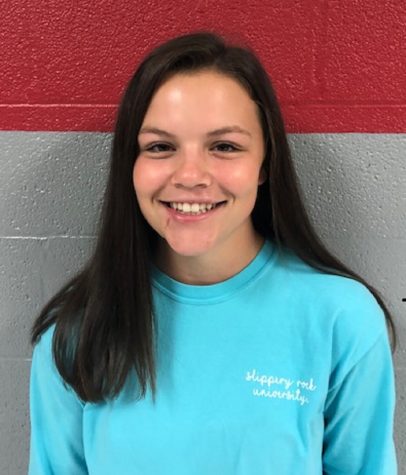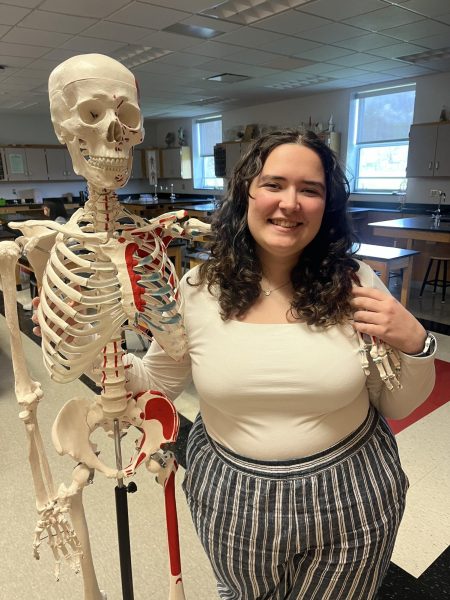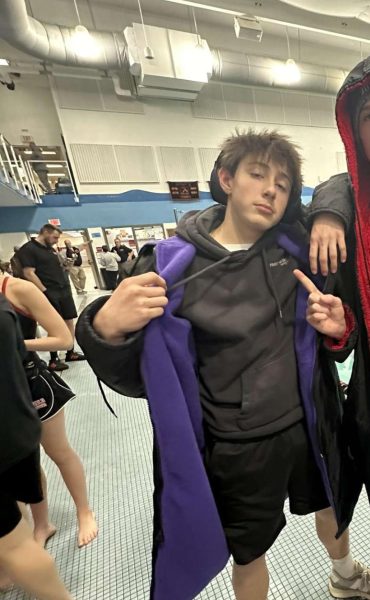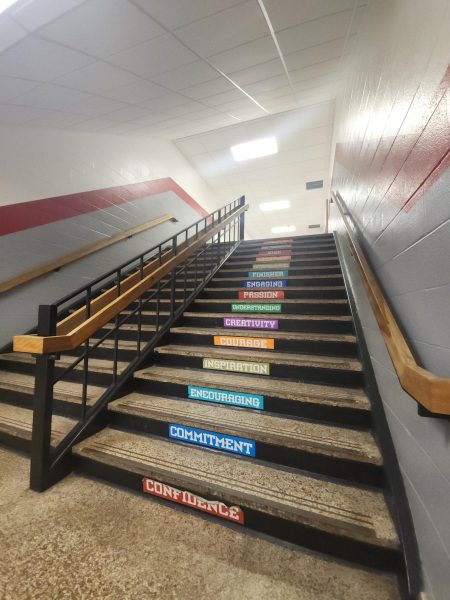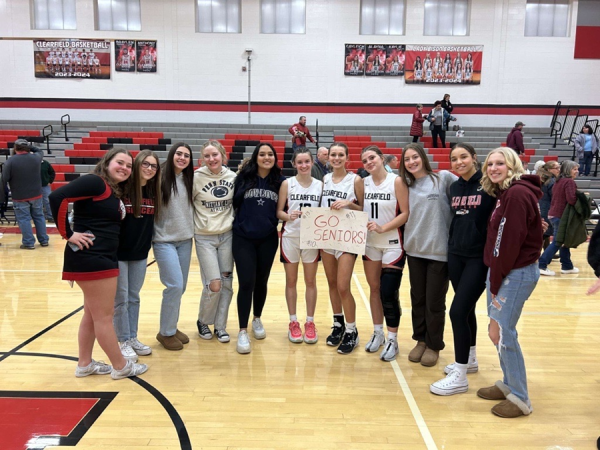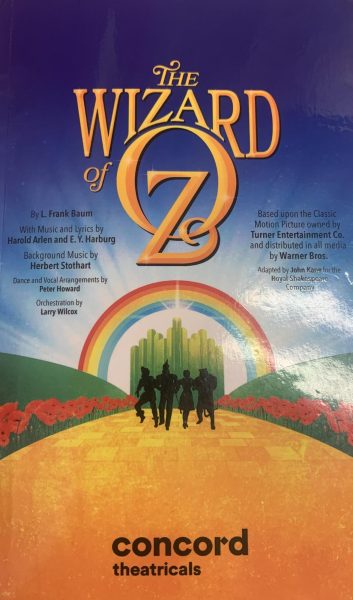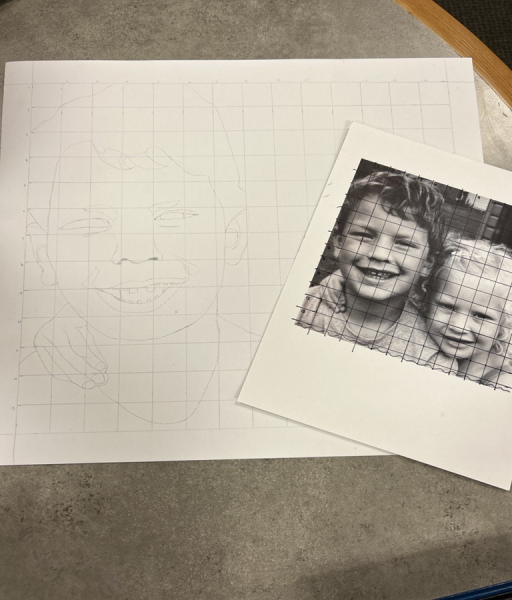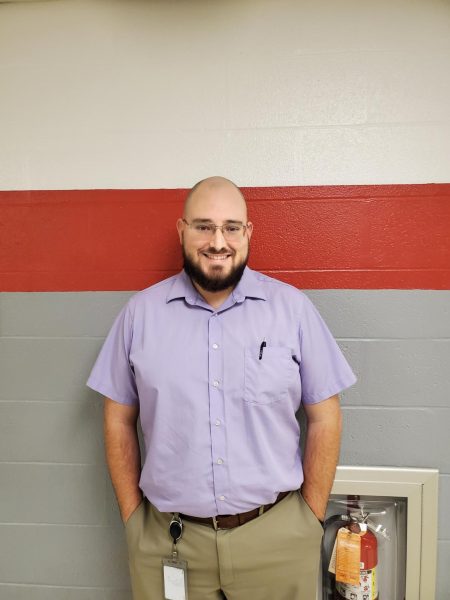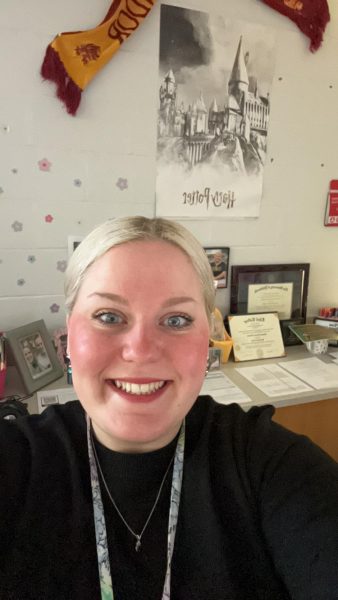Dr. Spaid gives insight on her role as a Guidance Counselor
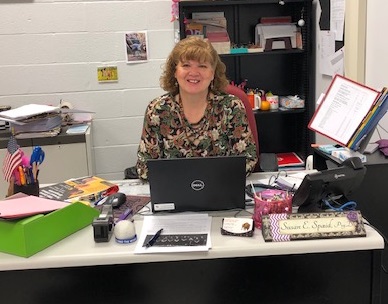
Dr. Spaid in her new office.
February 21, 2020
Dr. Spaid is the Guidance counselor for the Junior and Seniors at the Clearfield Area Junior-Senior High School. She has been at the High School since 2007. She has given some insight on what she does each day, how she can assist students, and some of her favorite parts of her job.
Q: What grade level of students do you help?
Dr. Spaid says: “My case load of students is 11th and 12th grade. I also am responsible for all the students regardless of grade that participate in the associate degree program. Another part of my job is to be the liaison for all students in Foster Care, again regardless of grade.
Q: What is your favorite part of your job?
Dr. Spaid says: “Helping students realize their potential. I love helping students find a career path. Any time I am working with students I have great joy. I enjoy helping students work through issues that are impacting them academically or socially.”
Q: What kind of assistance do you offer the students?
Dr. Spaid says: “Whatever they need. I help with Career and College Planning. I help with dual enrollment. I do all the SAT and PSAT testing too. I help if a student is struggling in a class. If a student has a personal problem and needs to talk about the situation, I can help with that too. A school counselor is not a therapist, our jobs are different in that we do not set up 50 minute counseling sessions weekly, but we listen and counsel just like a therapist does to help students overcome issues that are impacting them and causing problems with their academic success, or general well-being. School counselors work in the domains of Academic, Career and Personal Social counseling. While my focus is primarily academic, I care about all aspects of a student’s life because students are multi-dimensional people. If I cannot help a student, I can refer them to other folks within the district as well as out in the community. My goal is to help a student feel good about all aspects of his or her life and to be a happy and fulfilled person.”
Q: When are you in your office?
Dr. Spaid says: “Every day! Sometimes I may have to leave for a meeting, but I am here all day!”
Q: Why did you move your office?
Dr. Spaid says: “To give my students better and easier access to me. The administration and I heard often from students how hard it was to get to guidance. Parents would call asking to have forms and other things emailed to them because their student could not take the time to stop in the guidance office. Now, all my students walk past my office at least twice a day, so it is easy for them to stop in and get the forms and or information they need. We will soon be handing out the local scholarship packet, and it will be so easy for seniors to stop in and get the applications they need since I am on 3rd floor now.” (Dr. Spaid is in room 316.)
Q: Do you like your new room?
Dr. Spaid says: “I absolutely love it! It feels warm and inviting and my students love it too! I try to make my space a place students want to come to. When I was first hired by the school in 2007, my office was in Mr. Poleto’s room. So, I started out in a classroom and when I got moved to the guidance suite in 2014, I was pretty unhappy. I always missed being out with the students, so when Mrs. Prestash gave me this opportunity, I was thrilled. It is great standing in the hallway as the classes change and seeing my students and all the students.”
Q: Do you feel more involved with the students after your move?
Dr. Spaid: “Absolutely! I am getting to know my students better and that is so important for a counselor. Last week I had over 100 students stop in and get help. I love being better connected with my students.”
Q: How long have you been at Clearfield High School?
Dr. Spaid says: “Since 2007.”
Q: As of now, at the second semester, what do the seniors need to be doing?
Dr. Spaid says: “Focusing on making their final college/military decisions. Also putting in job applications if they are headed into the work force or exploring opportunities for apprenticeships. They also need to keep their edge and not slack off. The entire senior year counts. If they need help- come and see me!”
Q: Is there anything else you would like the readers to know?
Dr. Spaid says: “Even though I am primarily responsible for juniors and seniors, any student can stop in my office if they have questions I can help with. Underclassmen often have questions about the PSAT and SAT and about career planning. They may also have questions about their junior and senior year schedules- what to take for a certain major. Since that is my specialty, I would be happy to talk to any student who has questions about career/college/ military planning.”
